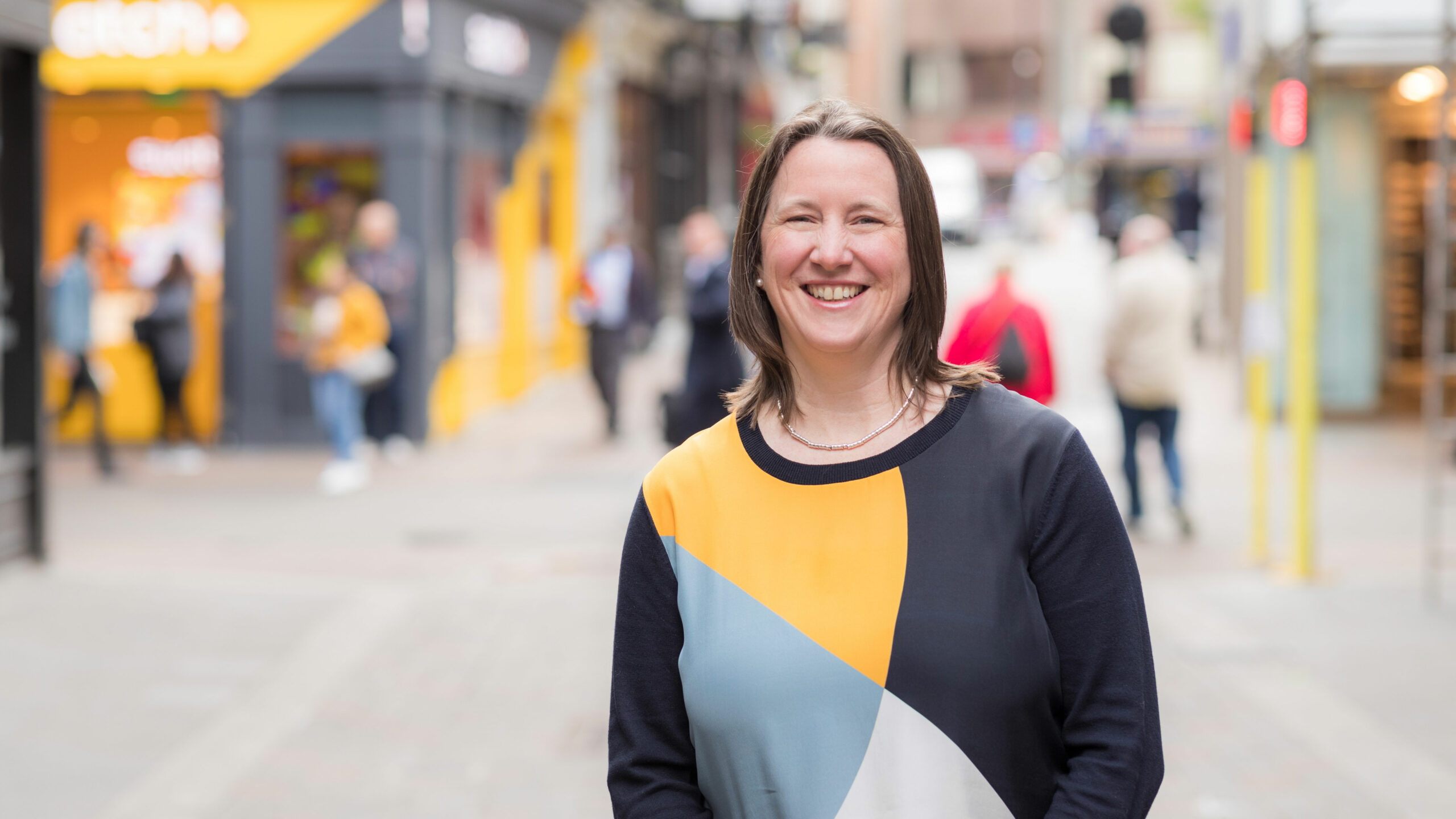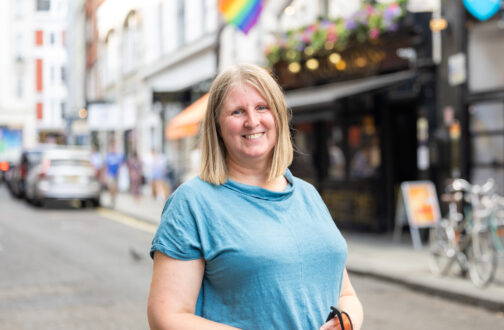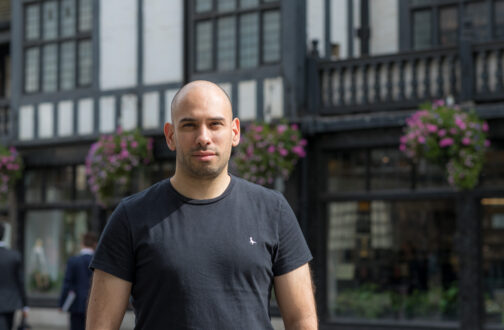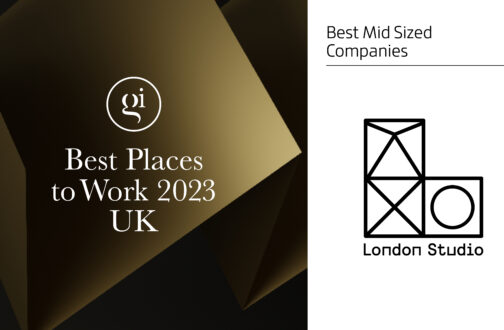
Breaking Barriers: In Conversation with Tara Saunders, Co-Studio Head
08/03/2023
As the gaming industry continues to grow and evolve, it’s important to recognise the inspiring people who have made a significant impact on the industry. In honour of International Women’s Day, we sat down with our very own, Tara Saunders – Co Studio Head in our team.
Tara’s career in games has spanned 20 years, so her experiences, challenges, and successes offer valuable insights and lessons for anyone who is looking to make their mark in the industry. In this candid conversation with Tara, we delve into the career journey she’s had and share the wisdom she has gained over the years.
Hey Tara! You started a Junior Animator at PlayStation over 20 years ago. Did you aspire to be in the leadership position you’re in today?
I’ve always enjoyed working with people. I get a kick out of supporting others to achieve something great. I know I’m often better at helping others achieve the work than doing it myself! I discovered that about me during my first Lead Animator role on The Getaway Black Monday. So, I didn’t ever really aspire to get to where I am now – it’s kind of just happened, but I will say that I consciously saw and made opportunities to make more of an impact. I never once sat back and thought – “hey, I want to run the studio one day.” It was more that I wanted to see the studio succeed in what it was trying to do, and I was willing to try new things to help. That’s what led to progression for me.
How do you inspire others whilst keeping yourself inspired about our studio mission?
Our studio is a great place to work, more so now than ever. So, in some ways it’s easy for me to stay inspired. I’m personally inspired by what the other PlayStation Studios are doing, by the bar they set, and by the principles that we have of being better together. The quality of what the studios do collectively is amazing, and I see a good culture of being willing to share successes and failures to help each other grow. I think when you believe in what you’re doing, and have great support around you, it helps to keep yourself motivated through the challenges of development. And things do get challenging!
In terms of how to inspire others, I firmly believe in leading by example. Being vulnerable, taking accountability for when you don’t get things right, and showing you can be trusted. It also helps if you involve others and give them a voice in where you are going or how you got there – I encourage feedback and input in most of the studio activities, making sure people can give feedback, raise issues, or recognise and celebrate successes.
What would you say are the main challenges for women leaders?
There is still so much historical stereotype baked into society. Data shows that women are still the primary care givers when starting families, and so career breaks are commonplace for women. Balancing work and family responsibilities is hard and can make it challenging to devote the necessary time and energy to develop into a leadership role. Then, when you get into a leadership position having confidence and not succumbing to imposter syndrome can be a challenge. There can be feelings of self-doubt resulting from expectations when reaching success. We can be harsh on ourselves and overly self-critical. This is something I am guilty of and am trying hard to overcome. I found it really interesting in a recent offsite when we were evaluating how good we felt we were living up to our studio values that me, as the only women in the team, rated themselves the lowest. It was eye-opening!
Have there been times when gender discrimination has affected your career advancement opportunities? If so, are you willing to share your story?
I’ve not experienced a lot of issues over the course of my career, but a long time ago I had an experience where I discovered many other senior (male) leads were being invited out for work/networking dinners. A lot of professional relationships get built when you stop talking about work, just chill and have a meal or drink together. To not have an opportunity to do this when men under the same manager did was just wrong on all levels. I feel things like that can affect your own career journey and can affect how people are seen.
Through your 20+ years career, what stands out for you as key progress for women in gaming?
There has been a real growth in women in the industry, and I feel there are way more women leaders now. Just looking across the leadership of PlayStation Studios highlights a lot of strong women that are amazing role models for me. Angie Smetts, Siobhan Reddy, Yumi Yang, Connie Booth, Jade Raymond, and Lynn Azar to name just some of the people that inspire me. I’m very happy that I work in a company that has made some great strides in this area, even though there is always more to do. I also think women are supported to have their voice heard now, be seen and have a seat at the table as much as anyone else. There has been lots of progress, and in part that progress has led to more diversity in the kind of games that are being made in the industry.
I’ve not just been purely focused on gender, but all underrepresented people. I just want to see our games be representative and reflective of the world around us, and I think to do that you need to have diverse teams made up of people from all walks of life. I fundamentally believe that anyone can do anything if given an equal opportunity to try. I’ve always thrived off seeing other people achieve things, so empowerment of everyone is important to me.
So how can we take this progress further?
It’s important that we are not just focused on playing a stat and numbers game but really appreciate and educate on the value that diversity brings. We need everyone to take accountability, have us all look at the balance of our teams and make sure we are doing everything we can to attract, grow, and retain not just women, but all underrepresented groups. For gender diversity specifically, we’ve seen a big shift in the studio, and this has been through ensuring women are always in the hiring pool. We won’t move forwards if they aren’t. The more women we’ve hired the more we’ve attracted – people see that this is a place they can see themselves. We still have a long way to go but we are starting to see progress from efforts started a while ago. We know that more women leave the industry than men, so we are we drilling into that and fixing the issues that result in them departing. I know that a lot of this is around needing to take time out to raise children, and the impact of very specific women health issues like, for example, the menopause. We must look at how we level up our support, both through the benefits we offer and the support and guidance we give to make sure we don’t fail our women talent and see them represented and thriving in all levels of the company.
We’ve talked about empowerment being important to you, but how do you that for yourself?
I find that staying positive is empowering. I have wobbles where I doubt myself, but overall I’m pretty positive and optimistic about life generally. This helps to pick myself up from knocks and just re-evaluate and find something to move forwards with. When I do have those ‘wobbles’, I really have to focus on switching off my inner voice and if necessary, turn to others for support. Having a strong support network and helping other women build this for themselves is really empowering. I’ve also found that making time to be more visible and sharing your story helps to empower others. Showcasing what is possible helps others that are further back in their journey.
What would you say had massively helped you over the years and that you want to pass on as advice?
Having a support network is super important. You need to consider this from an emotional support, professional advice, and mentorship perspective. It helps to know what support you need and then build this network divided into different areas. This is because some people are great at supporting in one area but terrible at another. It helps to reach out and stay in touch with existing connections that you have. In fact, cultivating and maintaining relationships is something I really value and have invested in over the years. Being active in groups and at events is also a positive thing – I’ve built much of my network through involvement in activity with BAFTA or meeting people at external events or mentoring programmes. If you are willing to have open and honest conversations and give as much as you take – then building networks can be easy.
Lastly – don’t create your own barriers! Learn to ignore your inner voice when it tells you that you can’t do something, or you shouldn’t say something. Be bold, be brave and show yourself that you can. I wish I had embraced that a bit earlier in my career.


